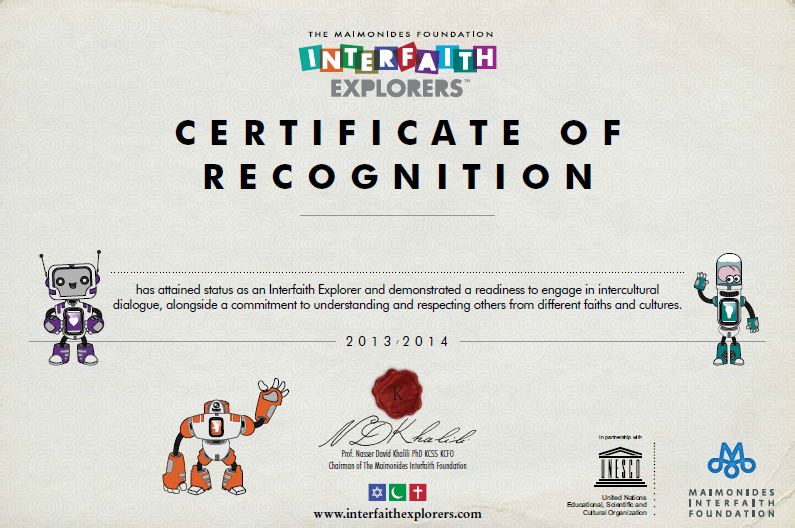Interfaith Explorers is a great free online learning resource, supported by UNESCO, which helps pupils understand the world around them as well as respect cultural and religious diversity. It provides children with a set of universal skills – a moral compass and the language for dialogue, respect and harmony. They can then better understand each other, regardless of particular faiths and beliefs.
"Everybody's different but the same on the inside...Stereotype is when you see a type of people and think they are all the same...it's not helpful because it puts in your head who you do like or don't like"
The Maimonides Interfaith Initiative recognises that tensions existing in the world today are the result of ignorance and lack of understanding. If ignorance is the problem, then education must be the answer.
Interfaith Explorers is designed to compliment RE and PSHE teaching, alongside citizenship education and SMSC development it schools. It offers teachers a bank of high quality cross-curricula resources to use with pupils at Key Stage 2 and those embarking on their Key Stage 3 transition (pupils aged from 7 to 11 years). It can also be used by teachers across the world.
It offers a bank of quality assured and trustworthy resources for pupils to use when exploring different faiths and cultures in the world.
As well as practical activities that promote ethical thinking; Interfaith Explorers supports the development of universal core values such as respect, responsibility integrity and compassion too.
Mapped to National Curriculum requirements, the Learning Unit at the heart of Interfaith Explorers is designed to enrich a school’s curriculum and can be used in international learning environments as well.
It offers a practical and comprehensive educational resource, which is easy to implement as can be delivered as a six-week unit or in parts throughout the academic year.

The Learning Unit is based on a robust pedagogy, which supports core personal and social skills development such as problem solving. It also promotes self-directed and exploratory learning.
Specifically, the Learning Unit focuses on three key areas of skill development so that pupils are supported to become:
As these are universal skills, the Learning Unit has a range supporting materials can be used in a wide variety of cultural and contextual contexts.
Additionally, there is a strong emphasis on research-based learning and teaching, which is built in throughout the Learning Unit.
Find out more about Interfaith Explorers here.